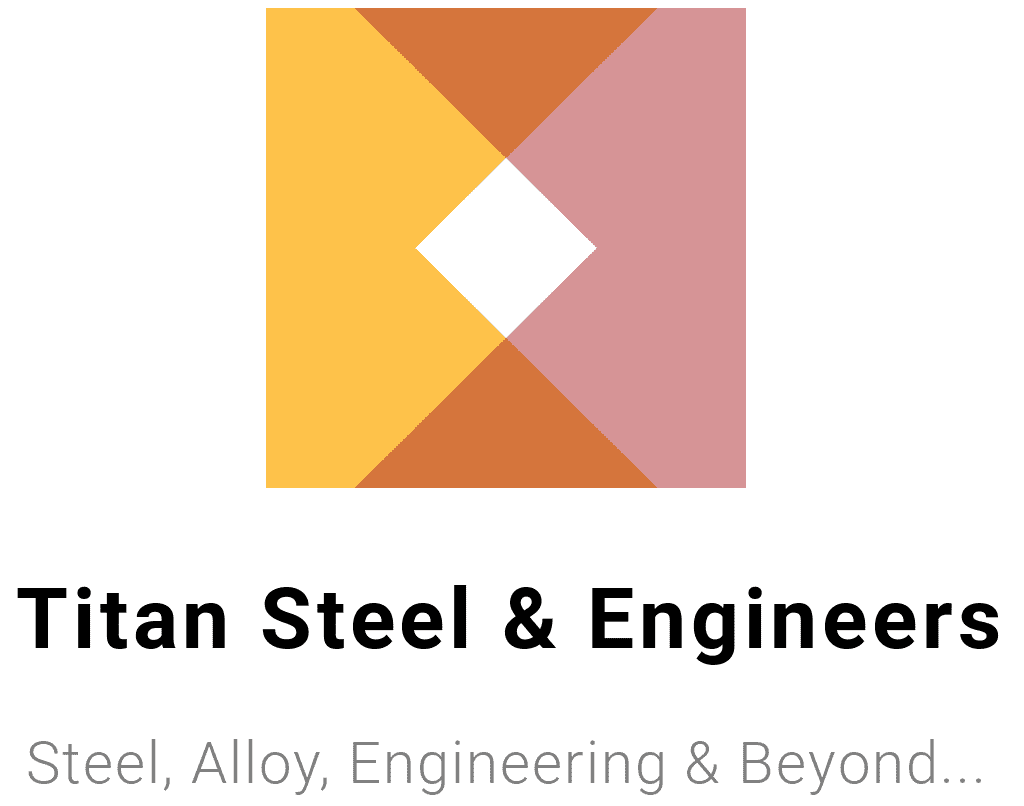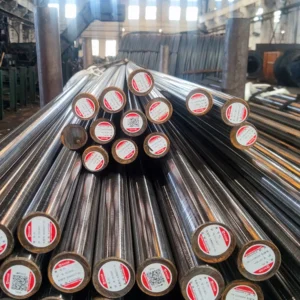Description
42CrMo Alloy Steel: Comprehensive Guide
42CrMo is a high-performance alloy steel known for its exceptional strength, toughness, and versatility. It is widely used in various engineering applications due to its ability to withstand high stress and perform reliably in demanding conditions.
Introduction to 42CrMo Alloy Steel
42CrMo, also known as SAE 4140 or EN19, is a chromium-molybdenum alloy steel that is popular for its high tensile strength and toughness. This steel is commonly supplied in a heat-treated condition, offering a good balance of hardness and ductility.
Key Features of 42CrMo Alloy Steel:
- High Strength: Offers superior tensile and yield strength.
- Toughness: Excellent impact resistance and toughness.
- Wear Resistance: Good resistance to wear and abrasion.
- Heat Treatability: Capable of achieving desired mechanical properties through heat treatment.
Applications of 42CrMo Alloy Steel
42CrMo is used in a variety of applications where high strength and durability are crucial. Its properties make it suitable for components that experience significant stress and wear.
Typical Applications Include:
- Automotive Parts: Crankshafts, gear shafts, and camshafts.
- Engineering Components: High-load bearings, heavy-duty gears, and structural parts.
- Industrial Machinery: Components in manufacturing and processing equipment.
- Aerospace: Parts in aircraft and spacecraft requiring high strength and reliability.
Equivalent Grades of 42CrMo Alloy Steel
42CrMo is recognized under different designations in various international standards, ensuring compatibility across global markets.
| Standard | Equivalent Grade |
|---|---|
| DIN | 1.7225 |
| EN | 42CrMo |
| AISI/SAE | 4140 |
| BS | EN19 |
| UNS | G41400 |
Chemical Composition of 42CrMo Alloy Steel
The chemical composition of 42CrMo is key to achieving its mechanical properties. The following table outlines the typical composition:
| Element | Composition (%) |
|---|---|
| Carbon (C) | 0.38 – 0.45 |
| Silicon (Si) | ≤ 0.40 |
| Manganese (Mn) | 0.60 – 0.90 |
| Phosphorus (P) | ≤ 0.035 |
| Sulfur (S) | ≤ 0.035 |
| Chromium (Cr) | 0.90 – 1.20 |
| Molybdenum (Mo) | 0.15 – 0.30 |
This composition ensures the steel’s high strength, toughness, and resistance to wear.
Mechanical Properties of 42CrMo Alloy Steel
The mechanical properties of 42CrMo highlight its performance in high-stress applications. The following table summarizes these properties:
| Property | Value (Typical) |
|---|---|
| Tensile Strength (MPa) | 800 – 1000 |
| Yield Strength (MPa) | 650 – 850 |
| Elongation (%) | ≥ 12 |
| Impact Toughness (J) | ≥ 35 (at room temperature) |
| Hardness (HB) | 255 – 295 |
These values indicate the alloy’s capability to withstand high stresses and impacts.
Heat Treatment of 42CrMo Alloy Steel
Heat treatment processes are used to optimize the mechanical properties of 42CrMo. The following processes are commonly employed:
- Hardening: Heat to 850 – 880°C and quench in oil or water to achieve high hardness and strength.
- Tempering: Heat to 550 – 650°C after hardening to improve toughness and reduce brittleness.
- Normalizing: Heat to 850 – 880°C and air cool to refine grain structure and enhance toughness.
These heat treatments allow for customization of the steel’s properties for different applications.
Hardness of 42CrMo Alloy Steel
The hardness of 42CrMo varies depending on the heat treatment it undergoes. Typical hardness values are:
- Annealed Condition: 220 – 260 HB
- After Hardening and Tempering: Up to 50 HRC
These hardness values reflect the steel’s ability to provide high strength and wear resistance.
Physical Properties of 42CrMo Alloy Steel
The physical properties of 42CrMo ensure its stability and performance across various conditions. The following table summarizes these properties:
| Property | Value |
|---|---|
| Density (g/cm³) | 7.85 |
| Melting Point (°C) | 1420 – 1450 |
| Thermal Conductivity (W/m·K) | 30 – 35 |
| Specific Heat Capacity (J/kg·K) | 460 – 480 |
These properties contribute to the alloy’s reliability in different environments.
Forging Properties of 42CrMo Alloy Steel
42CrMo can be forged within the temperature range of 1150 – 1250°C. It is crucial to cool the forged components slowly to avoid internal stresses and maintain dimensional stability.
Stress Relieving for 42CrMo Alloy Steel
Stress relieving involves heating the steel to 600 – 650°C to remove residual stresses from machining or forming. This process helps improve dimensional stability and reduce the risk of deformation.
Normalizing 42CrMo Alloy Steel
Normalizing is performed by heating the steel to 850 – 880°C and allowing it to cool in air. This process enhances toughness and refines the grain structure, improving overall mechanical properties.
Annealing 42CrMo Alloy Steel
Annealing involves heating the steel to 680 – 720°C and cooling it slowly in the furnace. This process enhances machinability and prepares the steel for further heat treatments.
Machinability of 42CrMo Alloy Steel
42CrMo alloy steel exhibits good machinability, especially in its annealed condition. It can be machined into complex shapes with standard cutting tools, although care should be taken to manage tool wear during high-hardness operations.
Welding of 42CrMo Alloy Steel
Welding of 42CrMo is feasible with proper preheating (to about 150 – 200°C) and post-weld heat treatment. Following appropriate welding procedures helps prevent issues such as cracking or reduced toughness.
Supply Cities:
Mumbai Ahmedabad, Amaravathi, Ambattur, Bangalore, Belgaum, Chennai, Chittoor, Coimbatore, Dindigul, Mysore, Nellore, Hyderabad, Kochi, Mangalore, Tirupur, Tuticorin, Madurai, Andhra Pradesh, Karnataka, Puducherry, Kerala, Tamil Nadu, Telangana, Visakhapatnam, Kochi, Kerala, Hubli-Dharwad, Karnataka, Ghaziabad Kolkata.






